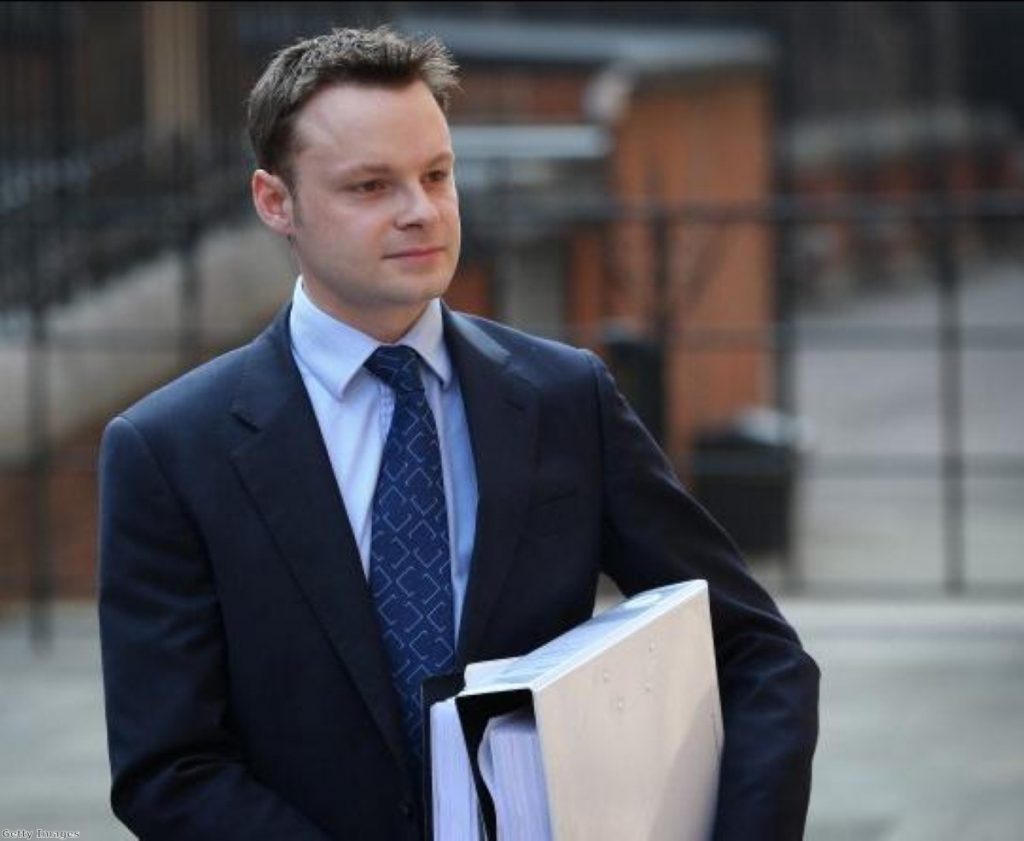Pressure, not wrongdoing, forced Hunt ex-spad Adam Smith’s resignation
Jeremy Hunt's former special adviser Adam Smith has insisted he did not resign because he behaved inappropriately in evidence to the Leveson inquiry.
His claim came at the end of a three-hour session in which he dismissed News Corporation lobbyist Frederic Michel's emails to James Murdoch as "a one-sided recollection and in many ways exaggerated".
Mr Hunt had initially told Mr Smith that it would not come to him having to resign and that the contacts with News Corporation were Mr Smith "doing my job, and not to worry".
Officials within the Department of Culture, Media and Sport (DCMS) did not criticise his conduct, he claimed.


But it eventually became clear that he would have to quit because of intense pressure on the culture, media and sport committee, who will give evidence to the Leveson inquiry himself next Thursday.
Mr Hunt told Mr Smith that "everyone" in the DCMS thought he had to quit because of political pressures.
"I thought by this stage that the perception had been created that something untoward had gone on, and that was why I'd offered my resignation the evening beforehand," he said.
When Mr Hunt told him that 'everyone thought I'd have to go', he viewed that as "confirmation in my mind that everyone else thought that".
Mr Smith conceded that his multiple texts to Mr Michel and their informal, "conspiratorial" nature made it appear as if he was acting in an underhand manner.
He also admitted regret at the "flippant" tone of many of his communications with Mr Michel, which he said were "clearly not as funny as I thought at the time".
The text message he regretted the most – one in which Mr Smith told Mr Michel that the special adviser was "causing chaos" on behalf of News Corporation – was explained as an attempt to "mollify" Mr Michel and "get him off my back".
Both Mr Smith's former boss Mr Hunt and the prime minister David Cameron are still facing pressure, after it emerged yesterday that Mr Hunt had written a memo to the prime minister informing him of his enthusiasm for the BSkyB takeover bid before Mr Cameron handed responsibility for it to Mr Hunt.
Mr Cameron said on ITV1's Daybreak programme this morning: "The key thing was it wasn't what [Hunt] had said in the past, it was how he was going to do the job.
"And I think, if you look at how he did the job, he asked for independent advice at every stage and he took that independent advice and he did it in a thoroughly proper way."
Many of the contacts between Mr Smith and Mr Michel centred around News Corporation's undertakings-in-lieu, which – had they been strong enough – could have prevented the need for Mr Hunt to refer the bid to the Competition Commission.
Mr Smith admitted trying to reassure Mr Michel that the media secretary was enthusiastic about News Corporation's undertakings-in-lieu after a Commons statement in which Mr Hunt appeared lukewarm.
Jonathan Stephens, the DCMS' permanent secretary, is appearing before the Leveson inquiry this afternoon. Mr Hunt will give his evidence next Thursday, at the end of a week which will also see former prime minister Tony Blair appear on Monday.









